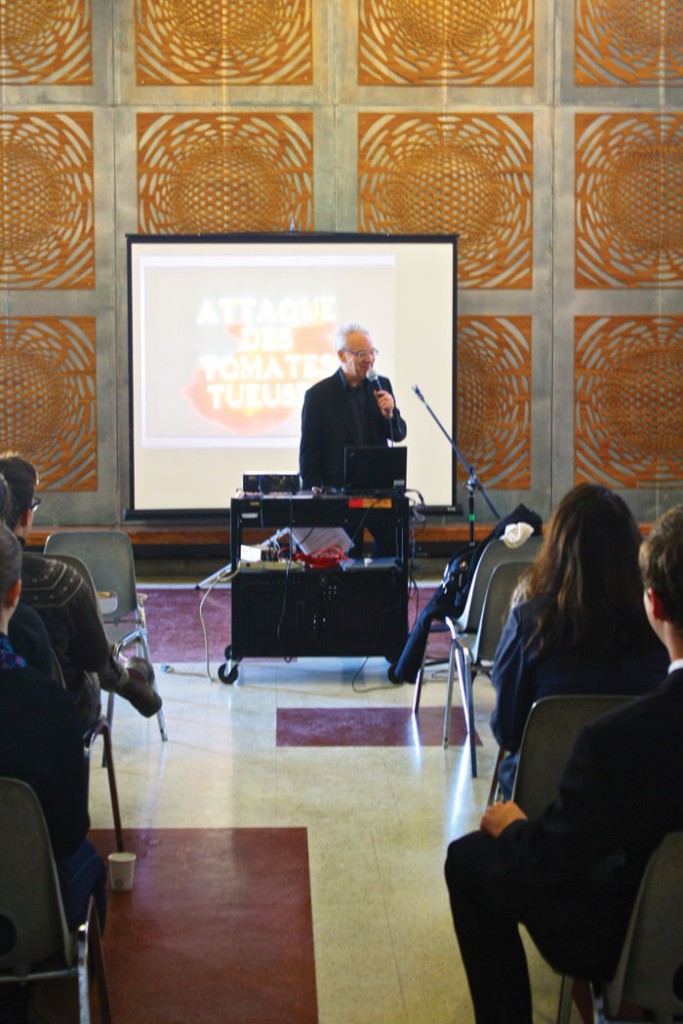The sixth annual Combining Two Cultures (C2C) conference was held this past weekend at McGill. Hosted by the Bachelor of Arts and Science Integrative Council (BASiC), the event included presentations from McGill professors specializing in integrative techniques, intensive workshops, Montreal tours, and a networking social. Initially held in 2009 at McMaster University, the conference celebrates collaboration between students and encourages the development of interdisciplinary studies. This year, students from McMaster, Guelph, and Waterloo were also in attendance.
President of BASiC Matt Satterthwaite emphasized how crucial conferences like this can be for the development of the relatively new Arts & Science program at McGill.
“We’re still really trying to find our identity both as a program and as a council,” Satterthwaite said. “I think being able to host a national conference like this and allowing us to bring Arts&Sci kids from across Canada—[getting] their experiences and see what different schools are tackling as an arts and science program—can help us better shape our program and increase our Art&Sci community here at McGill.”
Last year’s conference was held at Guelph University by Arts & Science student Kamelia Valkova and her own BASiC committee. Currently in her last year at Guelph, Valkova is working on a thesis that focuses on interdisciplinary studies and stresses the importance of collaboration, especially in an integrative program.
“It’s valuable to be able to network with other students from other programs because it gives you insight into what’s good about your own program and how other programs are doing theirs,” said Valkova. “I find that every year I’ve been able to talk about what things I’m studying, and I find I always enrich my own experiences.”
Speakers for the conference included many Art&Sci professors including Ariel Fenster, Ian Gold, Margaret Somervile, and Samer Faraj. Due to a last-minute illness, professor Gabriella Coleman was not able to speak.
The presentations focused on bringing together multiple disciplines to tackle previously stagnate subjects and bring forth new, inspiring, and enlightened ideas. Gold spoke about combining philosophical theories of social defence mechanisms such as threat and suspicion with neurological brain functions to rationalize strange beliefs. Later that day, Fenster, chemistry professor at McGill, gave a light-hearted presentation of social calculations of risks using food and wine as a backdrop for the discussion.
Other cross-disciplinary discussions of the weekend included neuroethics, consciousness, programming, and cross-disciplinary collaboration in health care systems. The conference consistently encouraged understanding the importance of not only bringing two different subjects together, but also building and working with them to create a whole new field greater than the sum of its parts.
Hayley Throne and Rebecca Little attend a very similar program at Waterloo, one that integrates environmental studies within a multitude of faculties and programs. Both believe that integrative studies are monumental to many fields usually considered singular.
“The reality is real world problems don’t fall into a singular discipline, and we need experts that have knowledge of various disciplines but also people who are able to communicate with them and are able to get them to collaborate,” Little said
“Our biggest social problems are beyond one scope,” Throne said. “Being able to work together is the right way to tackle problems.”
Next year’s C2C will be held at Waterloo University in Waterloo Ontario.









